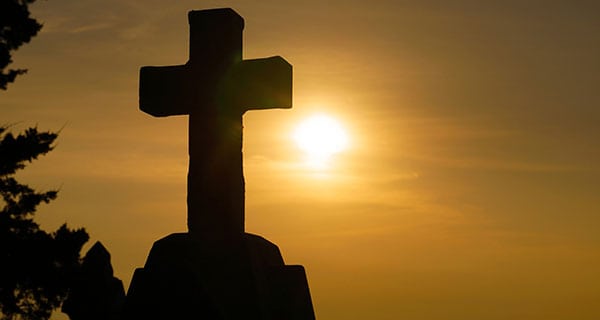 As tensions mount in the United States over whether a wall should be built along the Mexican border, little has been written about a force that could well become the determining factor on the issue.
As tensions mount in the United States over whether a wall should be built along the Mexican border, little has been written about a force that could well become the determining factor on the issue.
Despite its own struggles and coverups, the Catholic church has shown itself to be an insurmountable force when it fully embraces the fundamental directive of Jesus and preaches a message of empowerment, human dignity, love and peace. Despite the fact that this promulgation is often forgotten, history has nonetheless shown that it’s perhaps the greatest force on Earth.
Though there are many examples, two recent instances sufficiently illustrate the point.
Those of us who grew up during the Cold War remember the widespread existence of nuclear bombs, the walls and the fear that gripped the world. “Streichholz und benzinkanister” (match and gasoline can), as the German band Nena sang.
Yet Pope John Paul II spoke to the people of his native Poland, firmly entrenched behind the Iron Curtain, and told them that each one of them was sacred and loved, that they had a mission in life, and that no system of government could hold back their destiny. The Communist Party of Poland responded by giving military strongman Wojciech Jaruzelski dictatorial powers but he had little impact.
The message of hope spoken by John Paul II spread like wildfire, touching the hearts of people throughout Eastern Europe and the rest of the world. Within a few years, the Berlin Wall crumbled, communist dictatorships collapsed and the Cold War ended.
At around the same time, people of the Philippines, the only country in Asia with a majority Catholic population, were living under the dictatorial rule and martial law of Ferdinand Marcos.
It’s joked that at a dinner party Marcos said, “I admire those Americans. They know the result of the election on the same day of the election.”
To which Cardinal Jaime Sin, the leader of the Catholic Church in Manila, reputedly quipped, “How about us Filipinos? We know the result before the election!”
Yet the cardinal’s power was no joke. When Marcos declared that he had won the 1986 presidential election against Corazon Aquino, Sin called on the people to take to the streets in peaceful, prayerful protest. This became known as the People Power Revolution and it marked the end of Marcos’ presidency.
What does this have to do with the United States, a country built on what sociologist Max Weber calls the Protestant work ethic?
The populations living near both sides of the U.S.-Mexican border are largely Catholic. In fact, 38 per cent of American Catholics self-identify as Hispanic and this number is increasing. In addition, there are many Hispanic bishops and, for the first time, there’s a Latin American pope.
Catholic leaders are already mobilizing. Pope Francis said, “A person who only thinks only about building walls, wherever he may be, and not building bridges, is not Christian. This is not the Gospel.”
On a similar note, American Bishop Joe Vasquez stated, “Our faith calls us to respond with compassion to those who suffer and seek safe haven; we ask our government to do the same as it seeks to safely and humanely secure the border.”
The likely outcome of U.S. President Donald Trump’s hardline threats will be the same as those of Jaruzelski in Poland and Marcos in the Philippines.
A leader like Cardinal Sin or John Paul II will stand forward and remind the people on both sides of the border that they are loved, that they are precious in the eyes of God, and that they have a sacred mission to love their neighbours and make the world better.
They will walk forward together in peace with such a force that the most powerful armies in the world will drop their weapons.
These are not idealistic dreams. This is the making of history.
Troy Media columnist Gerry Chidiac is an award-winning high school teacher specializing in languages, genocide studies and work with at-risk students.
The views, opinions and positions expressed by columnists and contributors are the author’s alone. They do not inherently or expressly reflect the views, opinions and/or positions of our publication.

